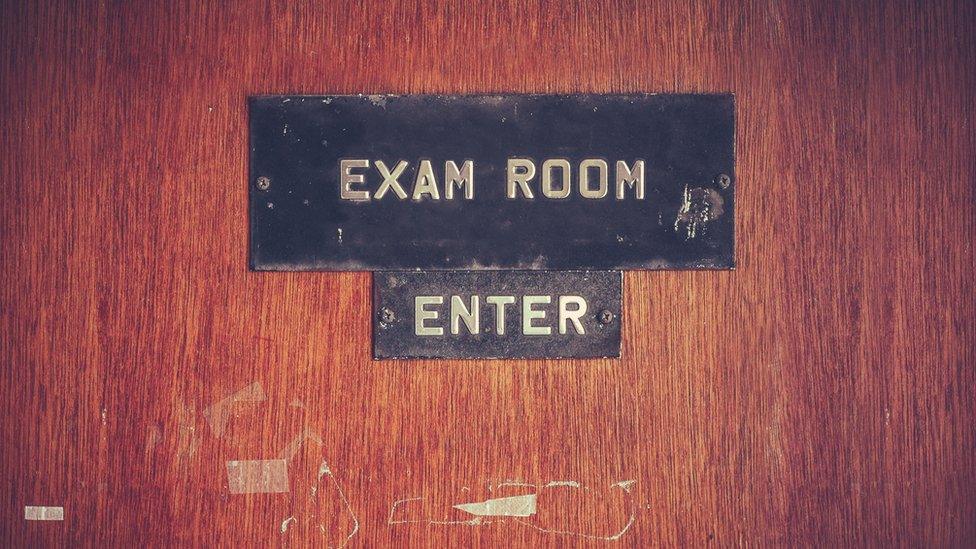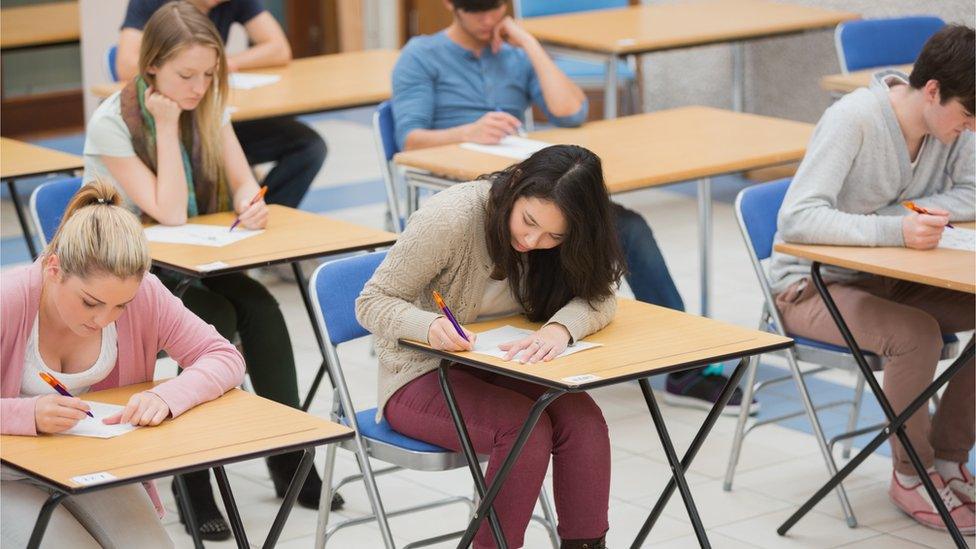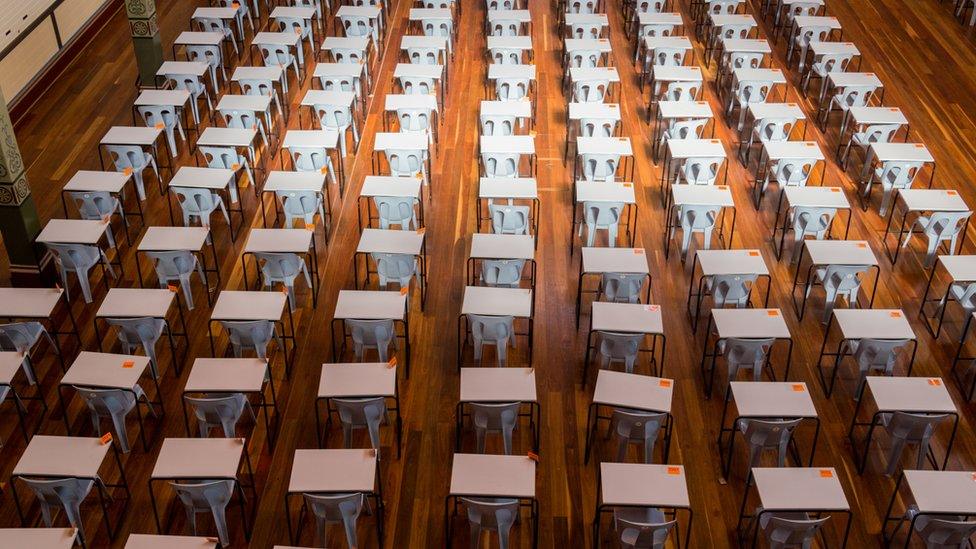Q&A: Why was the Higher English exam replaced?
- Published

Exam papers for this year's Higher English have had to be hastily replaced amid concerns some questions were leaked.
Tens of thousands of candidates across Scotland will sit the exam on Thursday.

What was the leak?
The Scottish Qualifications Authority (SQA) became aware of a "potential issue" involving one of the two question papers in the Higher English exam. This paper has been replaced.
The new one was sent out to schools and exam centres last week. All 35,000 or so candidates will sit the replacement paper on Thursday.

Do we know just what went wrong?
The SQA has not given any indication yet of just what happened or how the problem came to their attention.
There would seem to be three obvious possibilities: the risk of a leak from within the SQA itself; a leak from the printers; or a leak at a school or exam centre.
Tight security surrounds exam papers. Normally they are delivered together to schools and exam centres and stored under lock and key.
Bundles of papers are opened a short time before each exam to help ensure there is no possibility of anyone seeing the questions in advance.
One possibility is that a bundle of question papers may have been accidentally opened.
The risk of a leak nowadays is, of course, even more serious than before given the possibility of a questions appearing, say, on Facebook or Twitter.


What reassurance can the SQA give to candidates?
The SQA is adamant that candidates should not be concerned.
It is well aware of the risk that, because this story has become public knowledge, some candidates may be more nervous than normal and it is seeking to calm their anxieties.
The SQA makes the point it produces more material for every exam each year than is actually needed. So there are other questions available and they have been all through the quality control system.
However, the question paper has had to be changed very quickly. Normally setting an exam paper is a long process - the aim is to ensure the questions cover a broad range of skills and are of differing degrees of difficulty.
The question the SQA hasn't answered directly yet is how candidates can be absolutely confident that the paper when taken as a whole will conform to the expected standard.

What happens if it turns out to be too hard or too easy?
What can be said, is that in a subject like Higher English few if any questions are simply right or wrong.
Markers look for evidence of a candidate's skills and understanding of topics. To some extent, the questions are an opportunity for a candidate to display their abilities rather than a raw test of them.
Indeed memories of last year's Higher Maths debacle are fresh. That was an exam paper which had gone through the quality assurance process but still turned out to be far harder than it should have been.
If, for the sake of argument, the English paper turns out to be too easy or too hard that should become apparent from the range of marks.
The pass mark for an exam is rarely 50% and the boundaries between different grades fluctuate from subject to subject year to year.
So if it looks from the marks that a paper is too easy or too hard, the pass mark and the grade boundaries get adjusted up or down to ensure there is consistency from year to year.
It only becomes a problem if the pass mark moves out of that range from the mid 40s to mid 50s.
That's what happened with the Higher Maths last year when the pass mark came down to just 35%.
The SQA has been reassuring students and teachers the maths paper this year should be in line with the sort of paper they expect.


How embarrassing is this story for the SQA? Will heads have to roll?
With so little information in the public domain, it is hard to answer that question just now. This story could become hugely embarrassing for the SQA.
If a major problem with the Higher Maths one year is followed by a major problem with the Higher English the next year, then it could risk undermining confidence in the organisation.
It took the SQA years to recover from the disaster in 2000 when many candidates received the wrong results.
On the other hand, the story may be a quite different one. It may be the case that a potential disaster was averted.
If the SQA itself was not responsible for the leak, warning signs were picked up on and the replacement paper is indeed of high quality, then it is unlikely to damage the organisation.